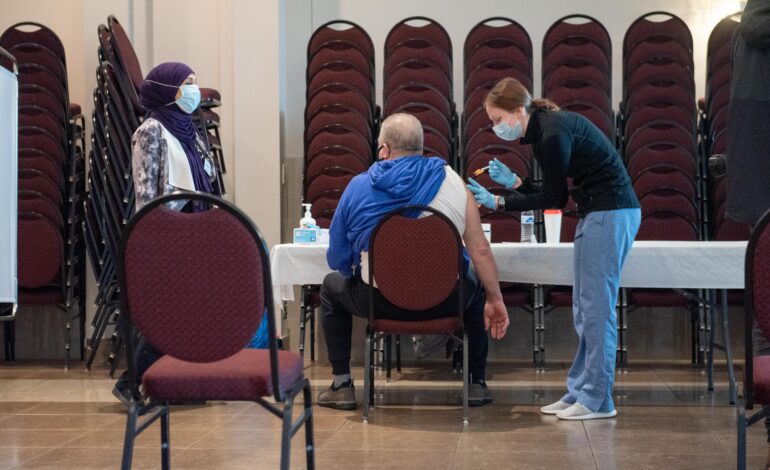LANSING — Following FDA approval, recommendations from the CDC’s Advisory Committee on Immunization Practices (ACIP) and additional recommendations by the CDC director, the Michigan Department of Health and Humans Services (MDHHS) is urging certain Michiganders to get a booster shot if they received Pfizer’s COVID-19 vaccine.
This includes people ages 65 and older, individuals 18 through 64 years of age at high risk of severe COVID-19 due to underlying health conditions and those at high risk of COVID-19 due to occupational or institutional exposure. The booster recommendation only pertains to individuals who received the Pfizer vaccine. Those who received Johnson & Johnson or Moderna are not eligible for a booster vaccine under the current recommendations and additional guidance is expected in the coming weeks.
The following groups are recommended to receive a booster shot of Pfizer’s COVID-19 vaccine at least six months after their Pfizer primary series:
- People 65 years and older and those aged 18 and older in long-term care settings.
- People aged 50 through 64 with certain underlying medical conditions.
The following groups are recommended to receive a Pfizer booster shot at least six months after their Pfizer primary series based on their individual benefits and risks:
- People aged 18 through 49 who are at high risk for severe COVID-19 due to certain underlying medical conditions.
- People aged 18 through 64 years who are at increased risk for COVID-19 exposure and transmission because of an occupational or institutional setting.
Underlying conditions that put individuals at high risk for a severe COVID-19 infection include chronic lung diseases, including COPD (chronic obstructive pulmonary disease), asthma (moderate-to-severe), interstitial lung disease, cystic fibrosis and pulmonary hypertension. The list includes cancer, dementia, diabetes and heart conditions. Individuals are asked to consult their physicians to see if their health conditions makes them eligible for a booster shot.
A full list of those underlying conditions can be viewed on the CDC’s website by searching “People with Certain Medical Conditions.”
Per the CDC, occupations at increased risk for COVID-19 exposure and transmission include frontline essential workers and health care workers, including first responders (health care workers, firefighters, police, congregate care staff), education staff (teachers, support staff, daycare workers), food and agriculture workers, manufacturing workers, corrections workers, postal service workers, public transit workers and grocery store workers.
This updated interim guidance from the CDC follows the Sept. 22 decision by the FDA, following a careful examination of the latest data, and robust and deliberative discussion around booster shots.
Michiganders are asked to bring their COVID-19 vaccine card or immunization record with them when getting their booster dose, which is available at any vaccine provider that has the Pfizer vaccine. Immunization records are available online at the Michigan Immunization Portal for many residents and can be downloaded and printed. To obtain their records, Michiganders must create a MILogin account at Michigan.gov/MiImmsportal and upload a valid government issued photo ID such as a driver’s license, state ID or passport. There is no cost to access the portal.
As previously recommended, Michiganders with moderately to severely compromised immune systems should receive an additional dose of the mRNA COVID-19 vaccine at least 28 days after a second dose of a Pfizer COVID-19 or Moderna COVID-19 vaccine. This additional dose is intended to improve the response of people who are immunocompromised to their initial vaccine series.
To date, more than 67 percent of Michiganders have gotten at least their first dose of one of the three safe, effective vaccines. From January to July, unvaccinated Michiganders accounted for 98 percent of COVID-19 cases, 95 percent of hospitalizations and 96 percent of deaths.
“The safe and effective COVID-19 vaccine is already protecting millions of Michiganders from this deadly virus,” said Dr. Joneigh Khaldun, the sate’s former health chief. “With the Delta variant circulating and cases of COVID-19 increasing, CDC and the FDA have determined that a booster dose is needed for some individuals to maintain and increase that level of protection. We urge all eligible Michiganders to get their booster dose six months after their second dose to help protect against COVID-19.”






Leave a Reply